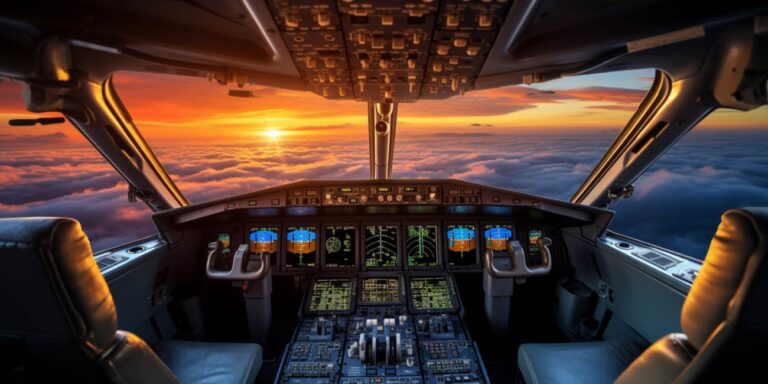First and foremost, it’s essential to recognize that the compensation for aircraft technicians varies based on several factors. The average salary for these skilled professionals can be influenced by factors such as experience, location, and the specific sector of aviation they are employed in.
For those just starting their careers in aviation maintenance, entry-level positions may offer a starting salary that is relatively modest compared to the industry’s senior members. However, as technicians gain experience and expertise, their earning potential tends to grow substantially.
Experience is a key determinant of aircraft technicians’ salaries. Those with several years in the field often command higher pay due to their in-depth knowledge and proven track record of ensuring aircraft safety and performance.
Geographical location also plays a significant role in answering the question of how much do aircraft technicians make. Technicians working in metropolitan areas with a high cost of living may receive higher salaries to offset the increased expenses associated with urban life.
Moreover, the sector of aviation can impact earnings. Technicians employed by commercial airlines, private companies, or government agencies may experience variations in their compensation packages. The demands and responsibilities associated with each sector can contribute to differences in pay scales.
Let’s break down some approximate figures to provide a clearer picture. On average, entry-level technicians may start with a salary in the range of $40,000 to $60,000 annually. As technicians gain experience and move into mid-level roles, their salaries can climb to $60,000 to $80,000 or more. Highly experienced and specialized technicians, especially those in supervisory or managerial roles, can command salaries exceeding $100,000 per year.
| Experience Level | Salary Range |
|---|---|
| Entry-Level | $40,000 – $60,000 |
| Mid-Level | $60,000 – $80,000 |
| Experienced/Specialized | Over $100,000 |
These figures provide a glimpse into the diverse earning potential within the aircraft technician profession. As individuals progress in their careers and accumulate valuable experience, their salaries can soar to new heights, reflecting the crucial role they play in maintaining the integrity and safety of aircraft.
Aircraft technician salary – how experience affects earnings
Aircraft technicians play a crucial role in ensuring the safety and functionality of aircraft, and their salary is influenced by several factors, with experience being a significant determinant.
Entry-Level Technicians: Those in the early stages of their career typically start with a modest salary. Entry-level aircraft technicians with minimal experience may earn around $40,000 to $50,000 annually. This base salary reflects their basic training and foundational knowledge in aircraft maintenance.
Moderate Experience: As technicians gain more hands-on experience and accumulate several years in the field, their earnings naturally increase. Those with 3 to 5 years of experience can expect a salary in the range of $50,000 to $70,000 annually. This phase often involves specialization in specific aircraft models or systems, contributing to their overall expertise.
Advanced Technicians: Individuals with a wealth of experience, typically ranging from 5 to 10 years or more, command higher salaries due to their extensive knowledge and proficiency. At this level, aircraft technicians may earn $70,000 to $90,000 annually. Their advanced skills make them valuable assets in the aviation industry.
Specialized Expertise: Beyond general experience, technicians who acquire specialized certifications or expertise in niche areas, such as avionics or specific aircraft types, can significantly enhance their earning potential. Certifications from reputable organizations can lead to salary increments, potentially pushing annual earnings beyond $100,000.
Location Matters: Geographical location is another crucial factor influencing aircraft technician salaries. Technicians working in regions with a higher cost of living or greater demand for skilled professionals may command higher wages compared to those in less competitive markets.
Industry Impact: The sector in which an aircraft technician works also plays a role in determining their salary. Those employed by major airlines or aerospace manufacturing companies may receive more competitive compensation packages than those working for smaller, regional entities.
Union Membership: Some aircraft technicians may be part of labor unions, which can have a positive impact on their compensation. Unionized technicians often enjoy benefits such as negotiated wage scales, improved working conditions, and additional perks, contributing to overall job satisfaction.
What qualifications determine aircraft technician wages
An aircraft technician’s wages are influenced by several factors, with education being a key determinant. Individuals with a formal education in aviation maintenance, typically possessing a degree or certification from an accredited institution, often command higher salaries. Employers value a solid educational foundation as it reflects a technician’s theoretical understanding of aircraft systems.
However, wages are not solely dependent on education; training is equally crucial. Aircraft technicians undergo specialized training programs to enhance their practical skills and familiarity with specific aircraft models. Completion of these programs, often offered by aviation schools or through apprenticeships, can significantly impact one’s earning potential. This hands-on training ensures that technicians are well-versed in the latest technologies and industry best practices.
Skills play a pivotal role in determining wages for aircraft technicians. Proficiency in tasks such as troubleshooting, repair, and maintenance is highly valued. Employers are willing to compensate those who exhibit exceptional problem-solving abilities, attention to detail, and the ability to work efficiently under pressure. Skills acquired through practical experience and continuous professional development contribute to a technician’s marketability and earning capacity.
Furthermore, staying abreast of advancements in aviation technology is essential. Continuous knowledge updates ensure that technicians remain competent in handling modern aircraft systems. The aviation industry is dynamic, with new technologies emerging regularly. Technicians who invest in ongoing knowledge enhancement, whether through self-directed learning or participation in industry workshops, are often rewarded with higher wages.
Employers recognize the importance of a well-rounded combination of education, training, skills, and knowledge in their aircraft technicians. Individuals who excel in all these aspects are positioned for lucrative career opportunities and increased earning potential. The table below summarizes the key qualifications influencing aircraft technician wages:
| Qualification | Impact on Wages |
|---|---|
| Education | Positive correlation; higher education levels lead to increased earning potential. |
| Training | Positive impact; completion of specialized training programs enhances market value. |
| Skills | Significant influence; proficient troubleshooting, repair, and maintenance skills are rewarded. |
| Knowledge | Crucial; staying updated on aviation technology positively affects earning capacity. |
Regional differences in aircraft technician pay rates
Understanding regional disparities in aircraft technician pay rates is crucial for professionals navigating this industry. Across various locations worldwide, the compensation for aircraft technicians can significantly vary, influenced by factors like region, state, and country.
Location plays a pivotal role in determining the pay scale for aircraft technicians. For instance, in North America, technicians in the northeastern region tend to command higher salaries compared to their counterparts in the southern region. This trend can be attributed to the concentration of major aviation hubs in the northeastern states, leading to a higher demand for skilled technicians.
Moreover, the disparities in pay rates extend beyond national borders. European countries showcase distinctive differences in compensation, with countries like Germany and France offering more competitive pay compared to some Eastern European nations. This discrepancy often corresponds to the economic prosperity of each country and their investment in the aviation industry.
| Region | State/Province | Median Technician Salary (USD) |
|---|---|---|
| Western Europe | Germany | $65,000 |
| Eastern Europe | Romania | $30,000 |
| North America | Texas | $55,000 |
| North America | New York | $70,000 |
Within a country, variations can also be observed at the state level. In the United States, the difference in living costs between, say, Texas and New York, reflects in the technicians’ pay rates. Higher living expenses in states like New York often translate to higher wages to maintain a reasonable standard of living.
Moreover, location not only affects base salaries but also impacts additional benefits and bonuses. For instance, technicians employed in remote regions or areas with challenging working conditions might receive bonuses or perks to incentivize their work and compensate for the inconvenience.






